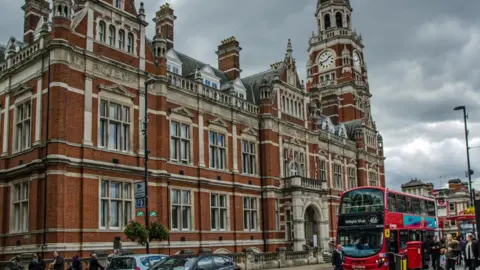The financial turmoil surrounding Croydon Council has reached a critical juncture, prompting urgent calls for a review and reset from government officials. According to Jim McMahon, the Minister for Housing, Communities, and Local Government, the council’s precarious economic status necessitates immediate action. In a statement delivered to the House of Commons, McMahon outlined concerns raised in a recent report regarding the council’s deteriorating fiscal health, describing its situation as worsening at an alarming rate.
The minister emphasized the importance of initiating a “short and sharp reset” to reverse the council’s financial decline. McMahon warned that if Croydon Council remained on its current trajectory, it would risk further harm to its residents, entrenching their difficulties without any viable strategy for recovery. He also hinted at the possibility of appointing commissioners to oversee the council’s operations if corrective measures are not promptly implemented.
In response to these developments, Jason Perry, the Executive Mayor of Croydon, has defended the council’s efforts. Perry asserted that he and his team have worked diligently to address financial issues while still preserving essential public services. He highlighted achievements such as generating over £230 million in capital receipts, including £130 million from asset sales, a significant amount aimed at improving the financial footing of the council. Furthermore, he pointed out the increase in council tax rates by 10% over the cap in the year 2023, intended to help close financial gaps.
Despite these attempts to stabilize finances, the council’s general fund debt reportedly sits at a staggering £1.4 billion, relying heavily on Exceptional Financial Support (EFS) through capitalisation directives to keep its budget balanced. The unfavorable report from the improvement and assurance panel indicated a lack of urgency in addressing the financial crisis, suggesting that Croydon Council is falling short of its Best Value Duty.
McMahon’s analysis did not hold back in characterizing the situation as a financial crisis. He underscored his authority to intervene under local government regulations to implement necessary changes. The suggestion of a significant government intervention has raised alarm about possible centralization of control over local governance, which Perry has voiced concerns about.
The debate hinges on the effectiveness of the council’s current actions, as Perry contends that the government had never instructed Croydon Council to take specific measures if they believed it was not acting appropriately. This insinuates that the government might agree with the decisions already taken by the council. Perry’s remarks encapsulated a sentiment of frustration towards the oversight mechanisms in place, leading to skepticism about the proposed intervention.
In light of the upcoming deadline for the council’s formal response to the government on June 25, Perry indicated that they would contemplate all available options. The trajectory of these discussions will not only impact the council’s immediate financial decisions but also set a precedent for the governance structure of local councils elsewhere in the UK.
With mounting pressures, Croydon Council finds itself at a crossroads. On one side is the push for measures that could lead to government intervention and potentially diminish local autonomy; on the other, a significant community that has felt the sting of austerity and resultant strain on services. The implications of the council’s decisions extend beyond financial statements, affecting the quality of life for the residents of Croydon, who are keenly aware of the unfolding events. The interplay of local governance and state intervention is now a critical discussion, spotlighting the essential need for a balanced approach to financial recovery while maintaining community trust and service provision.



